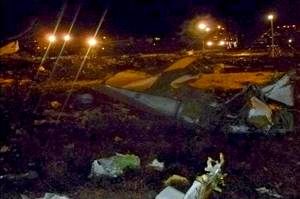New Delhi, May 28: Twitter CEO Jack Dorsey today reinforced his stance on pointing out "incorrect or disputed information about elections globally", a day after US President Donald Trump threatened to shutter social media over Twitter's actions on his posts.
Mr Dorsey appealed to "leave our employees out of this" as the face-off with Mr Trump is likely to escalate.
"Fact check: there is someone ultimately accountable for our actions as a company, and that's me. Please leave our employees out of this. We'll continue to point out incorrect or disputed information about elections globally. And we will admit to and own any mistakes we make," Mr Dorsey tweeted.
"This does not make us an 'arbiter of truth.' Our intention is to connect the dots of conflicting statements and show the information in dispute so people can judge for themselves. More transparency from us is critical so folks can clearly see the why behind our actions," said the Twitter CEO.
Fact check: there is someone ultimately accountable for our actions as a company, and that's me. Please leave our employees out of this. We'll continue to point out incorrect or disputed information about elections globally. And we will admit to and own any mistakes we make.
— jack (@jack) May 28, 2020
"Per our Civic Integrity policy (https://help.twitter.com/en/rules-and-policies/election-integrity-policy), the tweets yesterday may mislead people into thinking they don't need to register to get a ballot (only registered voters receive ballots). We're updating the link on
@realDonaldTrump tweet to make this more clear," Mr Dorsey tweeted.
Twitter had tagged two of Mr Trump's tweets in which he claimed that more mail-in voting would lead to what he called a "rigged election" this November. There is no evidence that attempts are being made to rig the election, and under the tweets Twitter posted a link which read: "Get the facts about mail-in ballots."
Five states in the US already conduct elections primarily by mail-in vote: Utah, Colorado, Hawaii, Washington and Oregon.
For years, Twitter has been accused of ignoring the US President's violation of platform rules with his daily, often hourly barrages of personal insults and inaccurate information sent to more than 80 million followers, news agency AFP reported.
But Twitter's slap on the wrist was enough to drive Mr Trump into a tirade - on Twitter - in which "Republicans feel that Social Media Platforms totally silence conservatives voices. We will strongly regulate, or close them down, before we can ever allow this to happen," Mr Trump said.
He said that an increase in mail-in ballots - seen in some states as vital for allowing people to avoid crowds during the COVID-19 pandemic - will undermine the election.
"It would be a free for all on cheating, forgery and the theft of Ballots," wrote Mr Trump, whose re-election campaign has been knocked off track by the coronavirus crisis. His torrent of angry tweets earned a top-10 trending hashtag: #TrumpMeltdown.
Facebook chief Mark Zuckerberg also waded in to the row, telling Fox News that his social network - still the biggest in the world - has a different policy. "I just believe strongly that Facebook should not be the arbiter of truth of everything that people say online," Mr Zuckerberg said in a snippet of the interview posted online Wednesday by Fox.
"I think, in general, private companies, especially these platform companies, shouldn't be in the position of doing that," he said.
he claimed that the political right in the US is being censored.
"Republicans feel that Social Media Platforms totally silence conservatives voices. We will strongly regulate, or close them down, before we can ever allow this to happen," Mr Trump said.
He said that an increase in mail-in ballots - seen in some states as vital for allowing people to avoid crowds during the COVID-19 pandemic - will undermine the election.
"It would be a free for all on cheating, forgery and the theft of Ballots," wrote Mr Trump, whose re-election campaign has been knocked off track by the coronavirus crisis. His torrent of angry tweets earned a top-10 trending hashtag: #TrumpMeltdown.
Facebook chief Mark Zuckerberg also waded in to the row, telling Fox News that his social network - still the biggest in the world - has a different policy. "I just believe strongly that Facebook should not be the arbiter of truth of everything that people say online," Mr Zuckerberg said in a snippet of the interview posted online Wednesday by Fox.
"I think, in general, private companies, especially these platform companies, shouldn't be in the position of doing that," he said.
 Moscow, Nov 18: A Boeing 737-500 airliner crashed on landing in the Russian city of Kazan on Sunday, killing all 50 on board and highlighting the poor safety record of Russian airlines that ply internal routes across the world's largest nation.
Moscow, Nov 18: A Boeing 737-500 airliner crashed on landing in the Russian city of Kazan on Sunday, killing all 50 on board and highlighting the poor safety record of Russian airlines that ply internal routes across the world's largest nation.




Comments
Add new comment